Conspiracy nation! From chemtrails to Taylor Swift psyops, the 2024 race is rife with bunk. California and Texas are hotspots for wacky ideas, but can YOU guess which state tops the chart?
Conspiracy theories are flourishing this election year in California, Texas, Alabama and New York.
But there’s another US state where fringe ideas are even closer to the mainstream, research shows.
A national survey of 3,000 voters showed that conspiracy theories have the deepest roots in Florida.
Floridians may be prone to crazy ideas because they spend so much time on social media, researchers say.
It could also be due to “disenfranchisement” of the state’s larger-than-average wealth gap, she added.
“It goes all the way to the top!” The archetypal conspiracy theorist from the comedy show It’s Always Sunny in Philadelphia
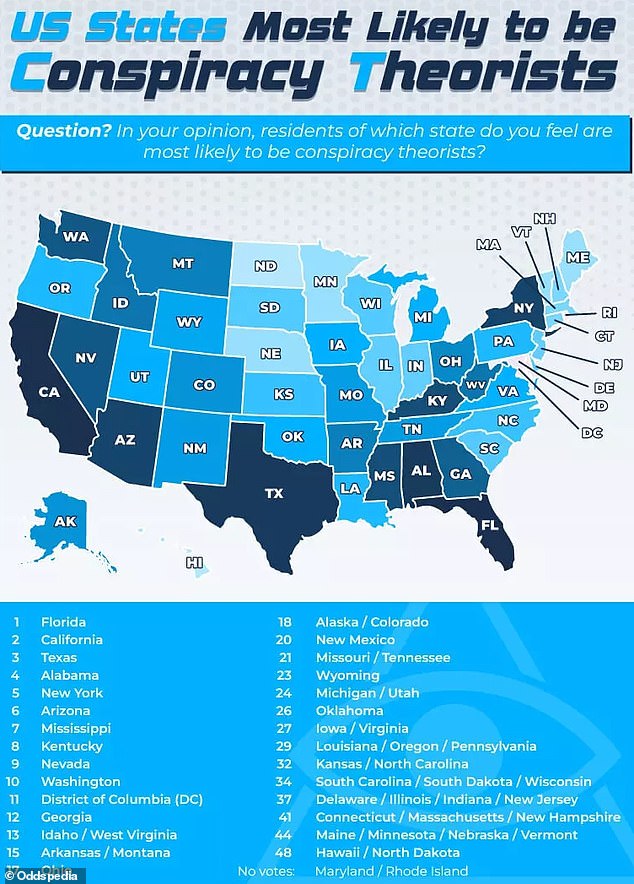
Conspiracy theories are flourishing this election year in Florida, California, Texas, Alabama and New York
The Sunshine State’s strange attitude was on display earlier this month during former President Donald Trump’s hush-money trial.
Max Azzarello, the man who set himself on fire outside the New York courthouse and later died from his injuries, was from St. Augustine, Florida.
Azzarello posted online about everything from Covid-19 as an “economic doomsday scenario” to mafia-run colleges.
Other theories are swirling as America heads into a divisive election season.
About a fifth of Americans believe pop star Taylor Swift is part of a conspiracy to help Joe Biden win re-election in November.
Many theorists expected her to endorse Biden when she attended the Super Bowl in February to cheer on friend Travis Kelce of the Kansas City Chiefs.
Nearly a quarter of American adults say last month’s bridge collapse in Baltimore was not an accident and attribute it to a dastardly plot, a DailyMail.com/TIPP poll found.
Meanwhile, worn-out theories about chemtrails have enlivened Tennessee lawmakers this month.
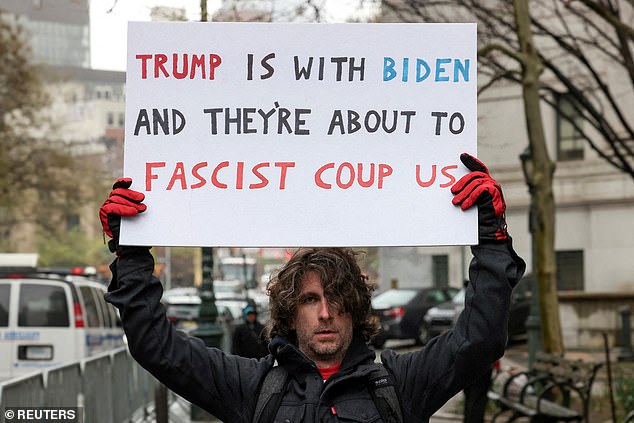
Max Azzarello of St. Augustine, Florida, set himself on fire outside the New York courthouse where Donald Trump’s historic hush money trial took place
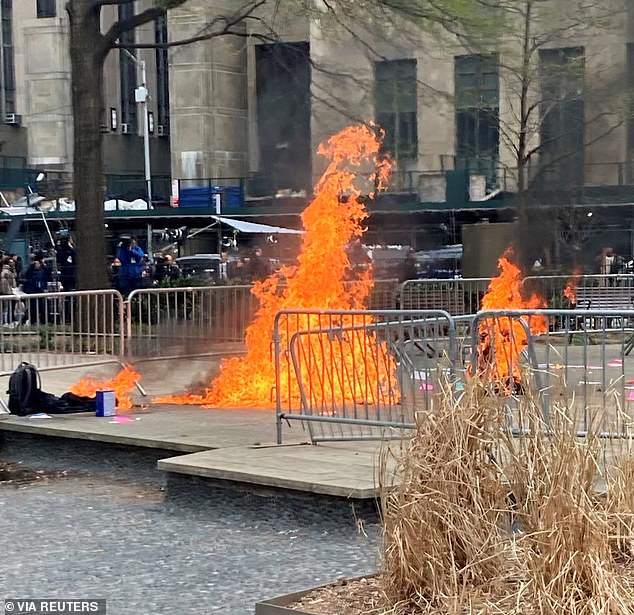
Azzarello, a conspiracy theorist, had posted online about everything from Covid-19 as an ‘economic doomsday scenario’ to mafia-run colleges
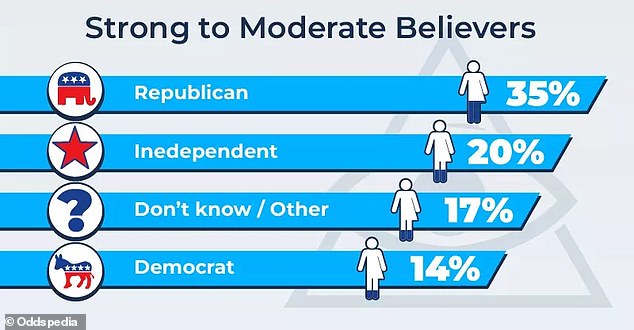
Republicans are bigger fans of conspiracy theories than Democrats, researchers say
They passed a Republican-led bill that would ban the “intentional injection, release or dispersal” of chemicals into the air.
Critics said it was a sop to rightists who believe in a secret government program to release toxic chemicals into the atmosphere from airplanes.
Proponents say chemicals can sterilize people, shorten lifespans or induce a form of mind control.
The research by gambling company Oddspedia found that most conspiracy theories involved government interference, which occurs in about two-thirds of conspiracy theories.
The research shows that fears about healthcare and medicine appear in almost half of the theories.
About a third contain stories about secret societies and alien life forms, it adds.
Conspiracy theories typically explain an event or set of circumstances as the result of a secret plot by a cabal of usually powerful schemers.
Usually it’s bizarre nonsense, but not always.
The theorists were right that John Lennon was secretly investigated by the FBI.
And the big tobacco companies were silent for decades about how cigarettes were killing people.
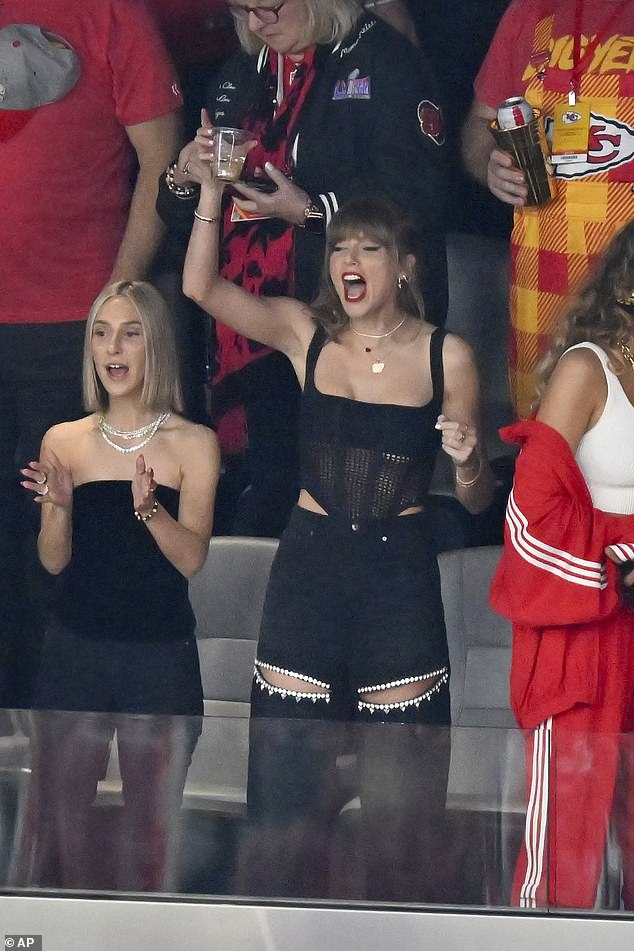
Many theorists expected Taylor Swift to endorse Biden when he attended the Super Bowl in February to cheer on friend Travis Kelce of the Kansas City Chiefs.
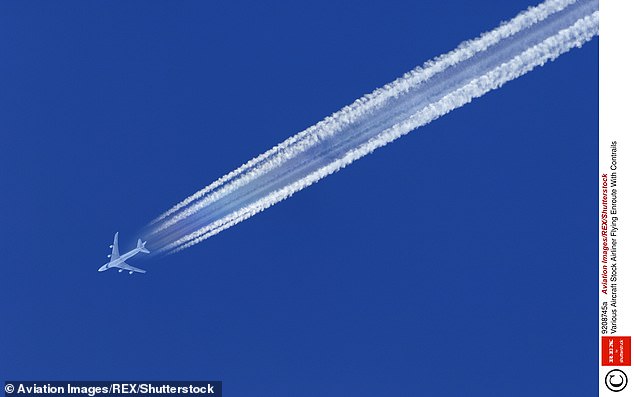
Tennessee Republicans passed a bill this month that would ban “intentional injection, release or dispersal” of chemicals into the air
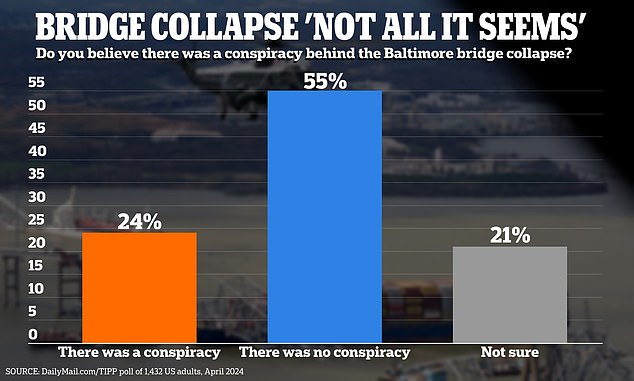
Nearly a quarter of respondents said the bridge in Baltimore collapsed due to a conspiracy

Theories about the disaster emerged shortly after the Baltimore bridge fell into the Patapsco River
Across the board, about four in five Americans support at least one conspiracy theory, the survey shows.
They are especially popular among Republicans, with 35 percent of Republican voters classified as “strong to moderate.”
That compares with just 14 percent of Democrats.
Respondents most often encounter theories on social media, especially Facebook and X/Twitter, they said.
More than 90 percent of voters said the theories could influence the perception of candidates in this year’s election.
Another 57 percent said they were distributed by people abroad.
They are likely to play a role in the November battle between Trump, a Republican, and Biden, a Democrat, researchers said.
Another candidate – independent Robert F. Kennedy Jr. – has boasted of his own conspiracy ideas about Covid-19 and mass shootings.
They have “entrenched themselves as a notable part of American political discourse,” researchers said in a statement.
“Our research reveals a landscape in which both politicians and social media platforms contribute to the spread of these theories, blurring the lines between intention and unintentional actions.”
